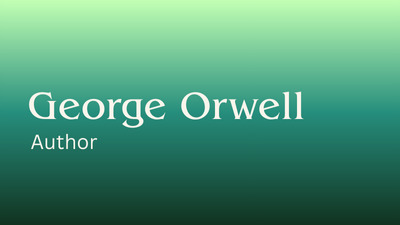In literature, a theme is the central idea or message that an author wants to convey through the story. Themes shape the meaning of a novel and allow readers to understand its deeper significance. The themes in 1984 book by George Orwell are some of the most powerful and enduring in modern literature. Orwell’s dystopian world explores political oppression, the destruction of individuality, and the manipulation of truth — warnings that remain relevant even today.
If you’re new to the story, you can start with our George Orwell’s 1984 overview for a quick overview before diving into the themes.
1. Totalitarianism and Absolute Power
Keyword: 1984 novel themes – political oppression
The main theme of 1984 is the dangers of a totalitarian regime. Orwell presents a society where the Party, led by Big Brother, controls every aspect of life — from language and history to thought and behavior.
- Example: The Thought Police monitor citizens for “thoughtcrime,” punishing even private dissent.
- Symbolism: Big Brother, one of the major symbols in 1984
, represents the ultimate authority, eliminating personal freedom. - Relevance: This theme warns how unchecked power can erase individuality and human rights.
2. Manipulation of Truth and Reality
Keyword: 1984 George Orwell themes – control of truth
In 1984, the Party rewrites history and changes facts to fit its narrative, creating a reality that suits its needs.
- Example: Winston’s job at the Ministry of Truth involves altering past records so they match the Party’s current version of events.
- Symbolism: The slogan “Who controls the past controls the future” reflects the Party’s power over truth.
- Relevance: This theme highlights the fragility of facts in the face of propaganda.
Read more on how Orwell explores this through memorable best quotes from 1984.
3. Surveillance and Loss of Privacy
The constant surveillance in 1984 ensures that no one feels safe or independent.
- Example: Telescreens watch citizens at home and in public, while informers report on neighbors.
- Symbolism: The telescreen represents the invasion of personal space and mental autonomy.
- Relevance: This theme connects to modern concerns over mass surveillance and data privacy.
4. Language as a Tool of Control – Newspeak
Keyword: What is the theme of 1984 – language control
Language shapes thought, and in Orwell’s novel, Newspeak is designed to limit expression and eliminate rebellious ideas.
- Example: Words like “freedom” are removed to prevent people from even imagining the concept.
- Symbolism: Newspeak shows how controlling language can control reality itself.
- Relevance: This theme warns against censorship and linguistic manipulation.
5. Psychological Manipulation and Indoctrination
Through propaganda, fear, and ritual, the Party reshapes citizens’ beliefs.
- Example: The “Two Minutes Hate” channels anger toward the Party’s enemies, strengthening loyalty.
- Symbolism: The image of Emmanuel Goldstein as the enemy unites citizens under fear.
- Relevance: This theme reveals how governments can create loyalty by manufacturing threats.
6. Love, Loyalty, and Betrayal
Keyword: 1984 Julia character – relationships under oppression
Even personal relationships in 1984 are manipulated by the state.
- Example: Winston and Julia’s love affair is an act of rebellion, but betrayal follows under torture.
- Symbolism: Their doomed romance reflects the impossibility of true love in a controlled society.
- Relevance: This theme shows how oppressive systems can destroy trust and intimacy.
7. Resistance and the Struggle for Individuality
Keyword: What is the main theme of 1984 – fight for freedom
Winston’s journey is about resisting the Party’s control — even in thought.
- Example: His diary writing and affair with Julia are attempts to reclaim personal freedom.
- Symbolism: The paperweight Winston treasures, one of the notable symbols in 1984, represents fragile human memory and individuality.
- Relevance: This theme inspires readers to value free thought, even when the odds are impossible.
At the End
The themes in 1984 book go beyond fiction, serving as warnings about political oppression, manipulation, and the erosion of truth. Whether it’s the 1984 George Orwell themes of totalitarianism or the main theme of 1984 — the struggle for individual freedom — Orwell’s message remains timeless.
FAQs
Q1: What is the theme of 1984?
The central theme is the danger of totalitarianism and the loss of individuality under absolute power.
Q2: What is the main theme of 1984 by George Orwell?
The main theme is the suppression of freedom through surveillance, propaganda, and language control.
Q3: How are 1984 novel themes relevant today?
Themes like mass surveillance, fake news, and manipulation of truth reflect modern social and political concerns.


